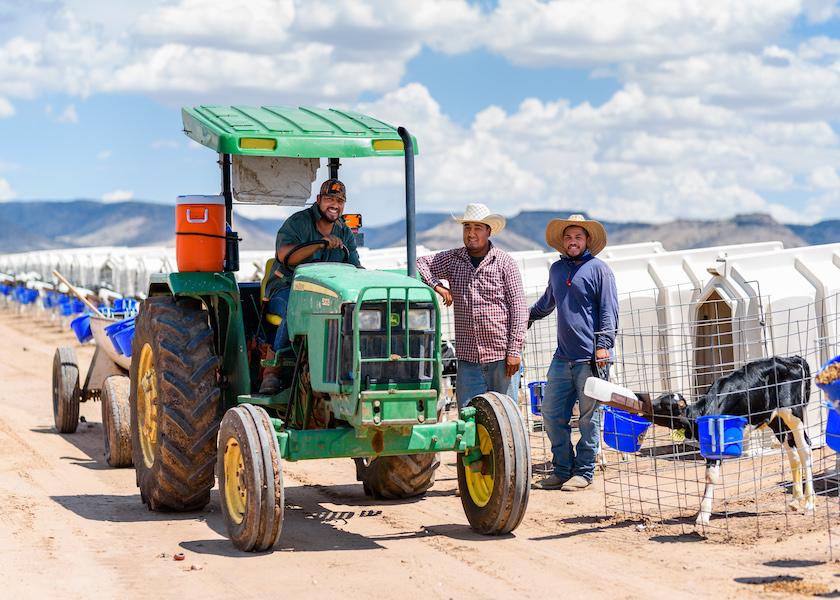Sustainable Teams Linked to Emotional Intelligence

The foundation of a successful, sustainable dairy operation is a strong team. Just as a blend of knowledge and technical skills is required to complete farm tasks, a combination of emotional intelligence and leadership skills is necessary for managers to direct and motivate effective teams.
In a recent episode of The Dairy Signal® presented by Professional Dairy Producers (PDPW), Tim Schaeffer, certified family business advisor and professional business coach with Encore Consultants, shared the necessary skills to be an emotionally intelligent business leader.
Emotional intelligence is the ability to understand and manage one’s own emotions as well as those of people around them. Managers who are able to pick up on emotional cues and responses of their team members are able to lead more effectively, even if there is a language gap.
The Teddy Roosevelt quote, “Nobody cares how much you know until they know how much you care,” rings true with employee teams, said Schaeffer.
Emotional Intelligence Leads to Team Sustainability
According to Schaeffer, emotional intelligence is equal parts managing yourself and managing external situations. During the episode, he highlighted the five key components of emotional intelligence: self-awareness, empathy, motivation, social skills and self-regulation. A firm grasp on these five elements leads to a more cohesive team in the short and long run. Particularly in today’s labor market, that translates into a more sustainable future for the entire operation.
Several of these elements involve the ability to manage emotions in a variety of situations. Emotionally intelligent managers can moderate how they feel and incorporate that into the way they come across to other people, particularly employees. Empathy is also a critical skill.
“Empathy doesn’t mean feeling sorry for someone; it is the ability to understand another person’s perspective,” said Schaeffer. “You don’t have to agree, you just know and understand where they are coming from, how they look at a situation and respond.”
While a manager’s personality and experiences drive much of their leadership style, all of the elements of emotional intelligence can be learned and practiced. That’s great news for dairy owners and managers, many of whom were drawn to farming for technical skills or interests, not for managing teams.
“When dairy farmers look in the mirror, they typically see someone who loves cows or loves the smell of corn, but don’t usually see someone who loves being a leader,” said Schaeffer. “Leading is not something people wake up and want to do; it is something they’ve evolved into doing.”
However, the benefits of good leadership can be seen across the business and plays out in richer relationships, stronger family ties and more meaningful legacies.
A number of profiles and tools can be used to help improve self-awareness, said Shaeffer. Personality profiles such as DISC, Clifton Strengths Finder, as well as 360-degree reviews and employee feedback sessions can help managers learn more about themselves, understand their leadership style and discover what drives them. Such tools can also help identify how managers and team members deal with conflict and allow teams to develop strategies to manage through potentially challenging situations.
View or listen to the full episode of “Emotionally Intelligent Business Leader,” for an overview of several styles of conflict management commonly used to help teams thrive.
All episodes of The Dairy Signal are archived here and can be viewed in video format or downloaded as a podcast.The Dairy Signal™ is aired each Tuesday, Wednesday and Thursday at 12:00-1:00 P.M. CT.
About PDPW
Professional Dairy Producers® (PDPW) is the nation's largest dairy producer-led organization of its kind, focusing on producer professionalism, stakeholder engagement and unified outreach to share ideas, solutions, resources and experiences that help dairy producers succeed.







